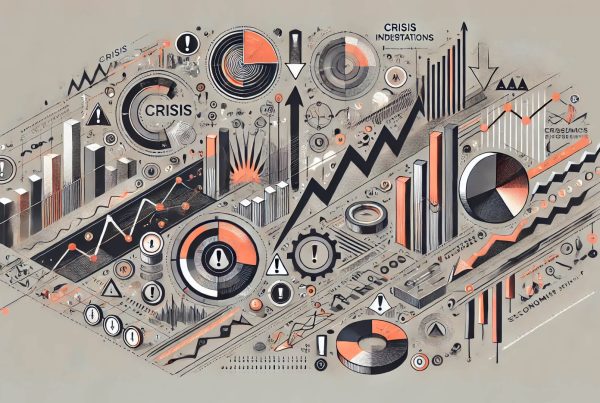The scenario of France intensifying its military involvement in Ukraine against Russia presents a complex web of geopolitical and economic implications. As the world watches this escalation, questions arise about the immediate and long-term economic impacts on France, Europe, and the global economy. This article delves into a speculative exploration of these consequences, analyzing potential shifts in economic policies, energy markets, defense spending, and international trade dynamics.
France’s Military Escalation: The Hypothetical Scenario
– France increases its military support for Ukraine, including direct engagement and substantial logistical and strategic support.
– This decision escalates tensions between NATO countries and Russia, leading to heightened military alertness across Europe.
Economic Impact on France
- Defense Spending Surge A significant increase in France’s defense budget to support its military activities, impacting public finances and potentially leading to cuts in other public spending or increased borrowing.
- Energy Markets and Prices With Russia being a major energy supplier to Europe, increased tensions could lead to energy supply disruptions or higher energy prices, affecting both consumers and industries in France.
- Trade and Sanctions Enhanced sanctions on Russia and potential retaliatory measures could disrupt trade, impacting French businesses, especially those reliant on Russian markets or supplies.
In a hypothetical scenario where France increases its military engagement in Ukraine, the economic repercussions would be multifaceted, impacting public finances, energy markets, trade relations, and the broader economic landscape. This expanded engagement could see France taking on a more prominent role in the conflict, possibly through direct military assistance, increased logistical support, and strategic involvement. The economic implications of such a move would be profound and varied.
1. Defense Spending Surge
The most immediate effect of an escalated military involvement would be a significant uptick in defense spending. France, already a major military power with substantial defense commitments, would need to allocate additional resources towards military aid, equipment, personnel, and technology development. This surge in defense expenditure would necessitate a reevaluation of the national budget, with potential outcomes including:
Increased Government Borrowing
To finance the sudden spike in defense spending, the French government might resort to increasing its borrowing, potentially raising the national debt. This move could affect France’s credit rating and increase interest rates, impacting the broader economy.
Redistribution of Public Spending
Allocation of funds towards defense could lead to cuts in other areas of public spending, such as education, healthcare, and infrastructure. Such reductions could have long-term societal impacts, including on public welfare and economic competitiveness.
Taxation Repercussions
An alternative or supplementary measure to cover the increased military expenditure could involve raising taxes. Higher taxes could dampen consumer spending and business investments, further straining the economic growth.
2. Energy Markets and Prices:
France’s deepened military involvement could exacerbate the already tense relations between Europe and Russia, a major energy supplier. Given the reliance of France, and Europe more broadly, on Russian gas and oil, heightened conflict could lead to:
Energy Supply Disruptions
Russia could curtail energy supplies to Europe as a retaliatory measure, leading to shortages and forcing France to seek alternative sources at higher costs.
Increased Energy Prices
The uncertainty and potential supply disruptions could drive up energy prices, increasing production costs for businesses and the cost of living for consumers. This scenario could spur inflationary pressures, further challenging the French economy.
3. Trade and Sanctions
An intensified military engagement would likely result in a strengthening of sanctions on Russia, with Moscow potentially imposing counter-sanctions. The economic implications for France could include:
Disrupted Trade Flows
French businesses involved in trade with Russia could face significant challenges, including loss of market access and increased costs due to tariffs and other trade barriers.
Supply Chain Complications
Companies reliant on Russian raw materials, such as metals and agricultural products, could experience supply chain disruptions, impacting production and increasing costs.
Impact on French Multinationals
French multinationals operating in Russia could face operational challenges, asset freezes, or even expulsion, resulting in significant financial losses and strategic setbacks.
The economic impact of France’s increased military involvement in Ukraine against Russia would be profound, touching every aspect of the French economy from government spending and fiscal policy to energy markets and international trade. The direct costs of increased defense spending, combined with the indirect costs arising from energy market volatility and disrupted trade relations, could strain the French economy. Moreover, the broader implications for public welfare, economic growth, and inflation could present significant challenges for policymakers, businesses, and citizens alike. Navigating this complex economic landscape would require careful strategic planning, economic resilience, and a proactive approach to mitigating the negative impacts of heightened military engagement.
Broader Economic Implications for Europe
- Eurozone Economic Stability Increased defense spending across Europe and potential trade disruptions could strain economic growth, affecting employment, investment, and consumer spending.
- EU Energy Policy and Security A push towards rapid diversification of energy sources, possibly accelerating investment in renewable energy but also leading to short-term energy shortages and price volatility.
- Financial Markets Increased geopolitical tensions could lead to volatility in European financial markets, affecting investments, pensions, and savings.
Eurozone Economic Stability
The Eurozone, characterized by its intricate web of economic interdependencies, faces a precarious balancing act in the wake of France’s hypothetical escalation of military involvement in Ukraine. Increased defense spending across member states, necessitated by heightened security concerns, could strain national budgets, diverting funds from essential social programs and infrastructure projects. This redirection of resources might not only exacerbate public debt levels but could also dampen economic growth prospects.
Furthermore, potential trade disruptions arising from intensified sanctions against Russia and retaliatory measures pose a direct threat to the economic stability of the region. European countries, especially those heavily reliant on Russian natural resources, could face significant challenges. Industries such as manufacturing, which depend on a steady supply of raw materials, might experience production halts or increased costs, leading to higher consumer prices and suppressed demand.
EU Energy Policy and Security
France’s deeper military engagement presents a pivotal moment for EU energy policy and security. The EU’s dependency on Russian energy supplies has long been a point of contention, highlighting vulnerabilities in the bloc’s energy security strategy. An escalation could expedite efforts towards diversifying energy sources, potentially catalyzing a significant shift towards renewable energy investments and technologies. While such a transition aligns with long-term environmental goals, the short-term implications could involve energy shortages, heightened energy prices, and challenges in ensuring stable and affordable supplies for European consumers and industries.
The situation may also prompt a reevaluation of energy relationships and infrastructure projects, encouraging greater intra-European cooperation on energy supply and transmission. This could lead to accelerated development of cross-border energy networks and storage facilities, aiming to enhance the continent’s resilience to supply shocks.
Financial Markets
The specter of increased military tensions between NATO members and Russia introduces considerable uncertainty into European financial markets. Investors, wary of geopolitical risks, may seek safe-haven assets, leading to fluctuations in bond yields and stock market volatility. European financial institutions could face a heightened risk environment, impacting lending, investment strategies, and ultimately, economic growth.
Moreover, the defense sector could see increased investment as countries boost military budgets, potentially benefiting related industries but also raising ethical and sustainability concerns among investors. Pension funds and individual savings could be affected by market turbulence, impacting wealth accumulation and retirement planning for millions of Europeans.
Looking Ahead
As Europe navigates the economic ramifications of France’s increased military involvement in Ukraine, the need for cohesive policy responses becomes evident. Balancing defense imperatives with economic stability, energy security, and financial market integrity will require unprecedented levels of cooperation and strategic foresight among EU member states. The situation underscores the interconnectedness of security and economic policies, highlighting the challenges and opportunities that lie ahead for Europe in this hypothetical scenario.
Global Economic Fallout
- Global Trade Networks Disruption in European and Russian trade networks could have ripple effects globally, impacting supply chains and leading to price increases in commodities and goods.
- Oil and Gas Prices Global energy markets could see increased volatility and price hikes, impacting economies worldwide, especially those heavily dependent on oil and gas imports.
- International Relations and Economic Policies Shifts in global alliances and economic policies, with potential impacts on international cooperation, development aid, and global economic governance.
Disruption in Global Trade Networks
Increased military engagement by France, especially if it leads to broader NATO involvement, could severely disrupt global trade networks. Russia, as a significant player in the global market, particularly in energy, minerals, and grains, plays a pivotal role in the supply chains of numerous industries. Sanctions, both existing and potential new ones, coupled with retaliatory measures by Russia, could exacerbate these disruptions. For instance, European countries heavily reliant on Russian natural gas could face shortages, forcing them to seek alternative, possibly more expensive, sources. This situation could lead to increased production costs and higher consumer prices worldwide, as Europe competes for liquefied natural gas (LNG) on the global market.
Moreover, global shipping routes could be affected by increased military activity in strategic areas like the Black Sea, further complicating international trade. Countries and companies would need to navigate these challenges, potentially leading to delays, increased shipping costs, and a reevaluation of just-in-time manufacturing models that depend on the seamless flow of goods across borders.
Volatility in Oil and Gas Prices
The energy sector would be at the forefront of the global economic impact. Russia’s role as a leading oil and gas producer means that any escalation in Ukraine that involves France more deeply could lead to fears of supply disruptions, driving volatility in oil and gas prices. This scenario would not only affect nations directly involved in the conflict but also have a broader impact on global energy markets. Rising energy prices would increase costs for industries and consumers alike, fueling inflationary pressures in economies still recovering from the effects of the COVID-19 pandemic.
Countries already dealing with high inflation rates might face additional challenges in controlling price rises, potentially leading to tighter monetary policies that could slow economic growth. Emerging markets, particularly those that are net importers of oil and gas, would be especially vulnerable to these dynamics, facing increased balance of payments pressures and potentially destabilizing currency fluctuations.
Shifts in International Relations and Economic Policies
The geopolitical landscape would undoubtedly shift in response to France’s increased military involvement in Ukraine. This shift could lead to a reevaluation of international alliances and economic policies. For instance, countries may seek to reduce their dependency on nations perceived as geopolitical risks, leading to a diversification of energy sources and supply chains. This realignment could accelerate trends towards regionalization of trade and investment flows, as countries prioritize stability and security in their economic relationships.
Moreover, global economic governance structures, such as the World Trade Organization (WTO) and the International Monetary Fund (IMF), could face new challenges in mediating between conflicting interests of their member states. Economic sanctions and counter-sanctions might prompt discussions about the effectiveness and fairness of these tools in international diplomacy.
Lastly, this scenario could catalyze a significant shift towards renewable energy sources and technologies. With the reliability of fossil fuel supplies in question, both governments and private sector entities might increase investments in renewable energy, leading to faster innovation and deployment. While this shift would have long-term benefits for global efforts to combat climate change, the short-term economic implications could include increased costs and transitional challenges for industries and workers alike.
The global economic fallout from France’s increased military engagement in Ukraine against Russia would extend far beyond the immediate regions involved, affecting global trade, energy markets, and international relations in profound ways. The potential for supply chain disruptions, volatile energy prices, and shifts in global economic policies underscores the interconnected nature of modern economies. As nations navigate these turbulent waters, the need for strategic foresight, flexibility, and international cooperation becomes increasingly evident, highlighting the delicate balance between geopolitical considerations and economic stability.
While speculative, this exploration highlights the intricate interconnections between military actions and economic outcomes. France’s increased military engagement in Ukraine could lead to significant economic challenges, both domestically and globally. However, it could also accelerate shifts towards greater energy independence and defense preparedness. Policymakers, businesses, and citizens would need to navigate these turbulent waters with strategic foresight and resilience.





